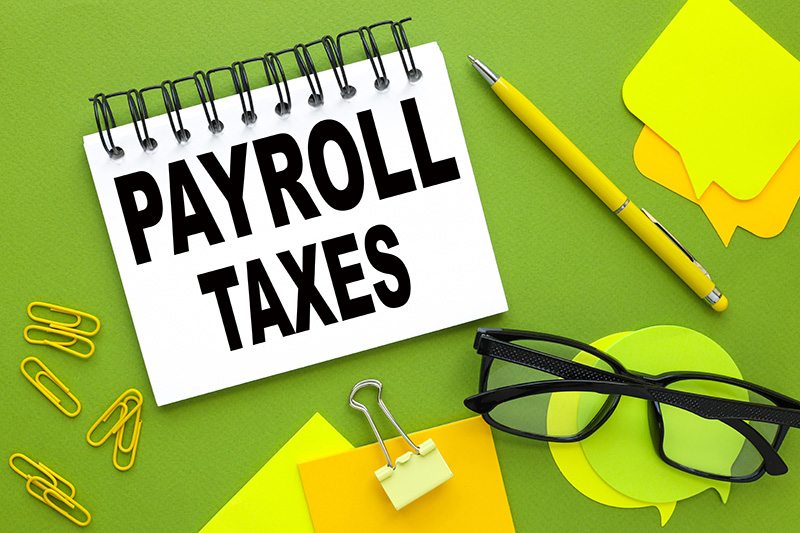What is the penalty for not paying business payroll tax?
January 10, 2023 by Steve Banner, EA, MBA
I’m glad you asked this question, because it’s much better for you to learn the answer by reading this blog than by painful practical experience through a series of IRS letters, penalties, and requests for payment. The IRS takes the matter of unpaid payroll taxes very seriously, and – trust me on this – you don’t want to find out first-hand exactly how serious they can be. It’s kind of like wearing a seat belt in your car: the law says you have to do it, but sometimes people wonder what would happen if they don’t buckle up. Suffice it to say that the outcome would not be pretty!
Let’s begin by looking at what we mean when we use the term “payroll tax.” As an employer, you are responsible to withhold certain taxes from the wages that your employees earn during each pay period, and then pay that collected sum to the IRS. These taxes typically include:
- Social security tax (6.2% employee portion plus 6.2% employer portion)
- Medicare tax (1.45% employee portion plus 1.45% employer portion)
- Federal income tax withholding
- State income tax (if applicable) withholding
- State unemployment tax
- Federal unemployment tax
These payroll taxes that you withhold from the salary of its employees each pay period (plus the matching amounts you add for Social Security and Medicare taxes) are supposed to be held in trust temporarily on behalf of your employees until you send the funds to the IRS and State. When the IRS receives its share of the payroll taxes, it credits these amounts to the income tax, Social Security, and Medicare accounts of each person. In other words, the money belongs to the employees, and you are betraying their trust if you do not send the correct amounts of payroll taxes to the U.S. Treasury on a regular basis according to the law. These Federal taxes are often referred to as “trust fund taxes,” and a Trust Fund Recovery Penalty may apply if your business does not withhold the correct amounts for each employee and pay those amounts in full and on time to the U.S. Treasury.
The Trust Fund Recovery Penalty is 100% of the unpaid trust fund tax. It may be applied to all individuals that the IRS determines acted willfully in not fulfilling their responsibilities for collecting, accounting for, or paying over those taxes. However, the penalties do not apply if the IRS accepts that a failure to make a proper and timely deposit was due to reasonable cause and not willful neglect.
For late or missing payments that do not yet rise to the level of the Trust Fund Recovery Penalty, the IRS may initially impose the Failure to Deposit penalty. This penalty adds a surcharge to the amount owed based on how late an incomplete or missing scheduled payment may be. These surcharges are calculated as follows:
| Calendar Days Late | Penalty for Missing Amount |
| 1 to 5 | 2% of the unpaid deposit |
| 6 to 15 | 5% of the unpaid deposit |
| More than 15 | 10% of the unpaid deposit |
| More than 10 days after the first IRS letter or notice | 15% of the unpaid deposit |
As we can see, the IRS has the power to impose some very strong penalties for businesses that fall behind in their obligations to make the scheduled payroll tax deposits. For example, a small firm with a handful of employees who makes quarterly payroll tax deposits may easily accrue a trust fund balance of $20,000 to be paid to the US Treasury at the end of the quarter. If the firm simply misses the payment deadline by a week, its payment due amount will be increased by another $1,000 ($20,000 x 5%). And interest may also be added to the amount due.
I hope it’s clear by now that a discussion about penalties for missing payroll taxes is better conducted as a theoretical exercise than a practical one. However, you don’t have to handle matters on your own if you find yourself in a position where you are dealing with the IRS about late or missing payroll taxes.
An obligation-free, cost-free evaluation with one of our experienced professionals at TaxAudit’s Tax Debt Relief Assistance program will help you understand the options available for you to get things back on the right track. The short video below by one of our Tax Attorneys offers further insight into payroll tax debts and how we can help you take action.






